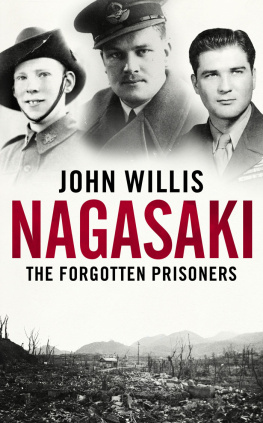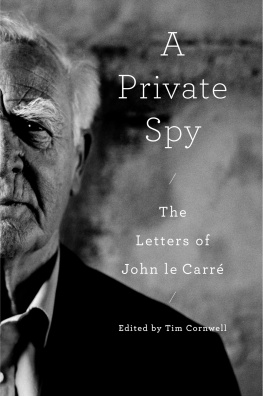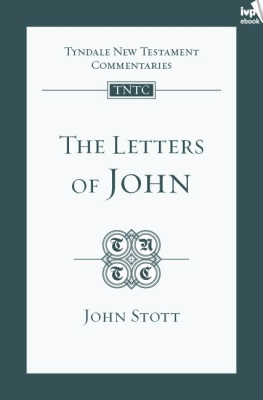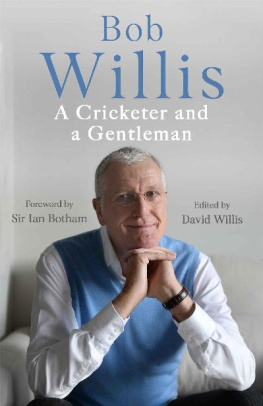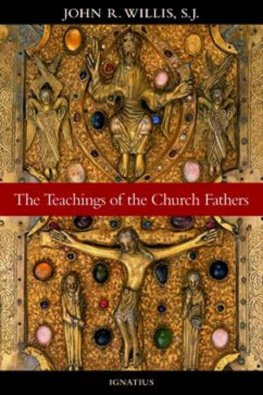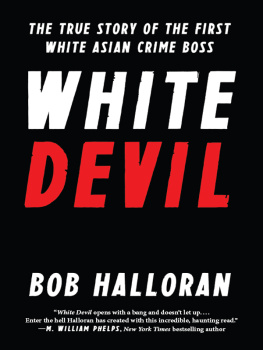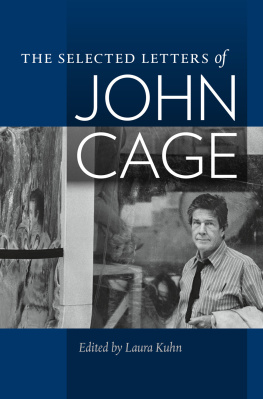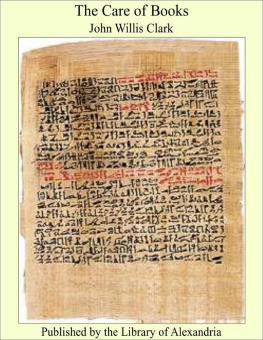John Willis - Secret Letters
Here you can read online John Willis - Secret Letters full text of the book (entire story) in english for free. Download pdf and epub, get meaning, cover and reviews about this ebook. publisher: Mensch Publishing, genre: Non-fiction. Description of the work, (preface) as well as reviews are available. Best literature library LitArk.com created for fans of good reading and offers a wide selection of genres:
Romance novel
Science fiction
Adventure
Detective
Science
History
Home and family
Prose
Art
Politics
Computer
Non-fiction
Religion
Business
Children
Humor
Choose a favorite category and find really read worthwhile books. Enjoy immersion in the world of imagination, feel the emotions of the characters or learn something new for yourself, make an fascinating discovery.
- Book:Secret Letters
- Author:
- Publisher:Mensch Publishing
- Genre:
- Rating:4 / 5
- Favourites:Add to favourites
- Your mark:
- 80
- 1
- 2
- 3
- 4
- 5
Secret Letters: summary, description and annotation
We offer to read an annotation, description, summary or preface (depends on what the author of the book "Secret Letters" wrote himself). If you haven't found the necessary information about the book — write in the comments, we will try to find it.
Secret Letters — read online for free the complete book (whole text) full work
Below is the text of the book, divided by pages. System saving the place of the last page read, allows you to conveniently read the book "Secret Letters" online for free, without having to search again every time where you left off. Put a bookmark, and you can go to the page where you finished reading at any time.
Font size:
Interval:
Bookmark:

SECRET LETTERS
A Battle of Britain Love Story
JOHN WILLIS

Mensch Publishing
51 Northchurch Road, London N1 4EE, United Kingdom
First published in Great Britain 2020
This edition published 2020
Copyright John Willis, 2020
John Willis has asserted his right under the Copyright, Designs and Patents Act, 1988, to be identified as Author of this work
All rights reserved. No part of this publication may be reproduced or transmitted in any form or by any means, electronic or mechanical, including photocopying, recording, or any information storage or retrieval system, without prior permission in writing from the publishers
A catalogue record for this book is available from the British Library
ISBN: HB: 978-1-912914-17-3; eBook: 978-1-912914-18-0
To Odette
In memory of Ted, Audrey and Ken
Without whom
the Battle of France is over. I expect that the Battle of Britain is about to begin The whole fury and might of the enemy must very soon be turned on us. Hitler knows that he will have to break us in this Island or lose the war. If we can stand up to him, all Europe may be free and the life of the world may move forward into broad, sunlit uplands. But if we fail, then the whole world, including the United States, including all that we have known and cared for, will sink into the abyss of a new Dark Age made more sinister, and perhaps more protracted, by the lights of perverted science If the British Empire and its Commonwealth last for a thousand years, men will still say, This was their finest hour.
Winston Churchill June 18 1940
CONTENTS
The letters of Pilot Officer Geoffrey Myers are not conventional. For a start, they were never posted, never dispatched to his wife, Margot, and his two young children, who were trapped in that part of France occupied by the Germans. The letters, in English, were written by hand in four small notebooks and start with the heading: SECRET. PRIVATE. They were to be read after the conflict and remain secret while the war was being fought. Whether he survived or not, Myers wanted his children, whom he hadnt seen for months, to know exactly what their father was experiencing as the brutal aerial war raged over southern England.
Myers was the intelligence officer attached to 257 Squadron in Fighter Command during the dramatic and dangerous days of the Battle of Britain. He was born into a Jewish family in Hampstead, North London, and had been a journalist for the Daily Telegraph before the war. At different times he was based in Berlin, just before the Nazis were beginning their ruthless rise to power, then London and Paris. As he wrote his letters, he had no idea if he would ever see his family again. In their hiding place in occupied France they were in constant danger of being arrested by the Nazis. Equally, as a Jewish journalist, now in the intelligence section of the RAF, Geoffrey himself would have been rounded up and killed had Hitlers invasion of Britain been successful.
The letters do not follow a neat, chronological structure through the Battle of Britain. In fact, they do not begin until September 8 1940, when the aerial war against the Luftwaffe had already been raging for several weeks. Geoffrey, it seems, had bottled up all his fears about his family trapped in occupied France, as well as the horrors of the Battle of Britain that he had already witnessed.
Eventually, the emotional dam burst and the words came pouring out. For days afterwards, almost in a stream of consciousness, he explained to his wife and family what had happened to 257 Squadron with a mixture of deep feeling and journalistic skill.
The letters zigzag backwards and forwards, starting with the Battle of Britain at its height then stepping back to Dunkirk, for example, and then back again to the middle of the Battle of Britain and then to its start. I have tried to keep faith with Geoffs intentions, but have occasionally reordered material to make more sense of it for the reader. If any of that does not work it is my responsibility, not Geoffs.
In addition, in common with many letters or memoirs written during the war, Myers changed names, even in the privacy of letters to his own family. This was presumably because he knew that one day his words would be read by outsiders, perhaps by accident. Geoff even gives himself a pseudonym, referring to himself as George in his notebooks. Flight Lieutenant Officer Hugh Beresford is called Allen and Flight Lieutenant Peter Brothers is named Eric Paisley. The legendary Squadron Leader, Robert Stanford Tuck, is dubbed Lucas and his unhappy predecessor, Squadron Leader Hill Harkness, is called Wight. To add to the secrecy, some pilots were given two pseudonyms; Carl Capon is both Capell and Masters, and Peter Blatchford is both Blackford and Fenley.
In the much more limited extracts I included in Churchills Few (Michael Joseph, 1985), I also used a pseudonym for Squadron Leader Harkness Sharp. This was because so much of the material is deeply critical of his behaviour, I did not feel comfortable with such public censure of an elderly man who was then still alive. Now, and in the updated edition of Churchills Few (Mensch, 2020), I can use his correct name which, in the intervening years, other authors have put into the public domain.
I have changed names wherever I could to the real ones, and all the major participants in this narrative are identified by their true names. On a few occasions, when it has been difficult to be absolutely certain of a pilots legal name, I have stuck with the pseudonyms given by Myers. At the same time I have, wherever possible, labelled geographical places correctly rather than by the initials used by Myers. So, for example, M is RAF Martlesham Heath and L is Lowestoft.
As the footnotes show I have used many other sources to add extra testimony and support to the letters of Geoff Myers. I was lucky enough to interview Geoff and several other 257 squadron members back in the early 1980s. More recently, the Myers family kindly gave me access to the short memoirs of their mother, Margot, translated from French by her daughter, Anne, as well as other fascinating material from the war.
As with all history, truths can be slippery. Even the Myers letters have a number of passages crossed out or changed. There is an occasional conflict between different sources or two contrasting recollections of the war. The chaos of scores of aircraft shooting at each other is a contributory factor to this, as is the natural desire to come out on the right side of history. As a virtually contemporaneous record from a respected journalist, I have given the letters of Geoffrey Myers significant weight.
No one can question the punctilious way that Myers did his job. In addition to Geoffrey, I met several members of 257 Squadron and read other accounts of events inside the squadron when I initially researched this period for Churchills Few , and also more recently for this book. Everyone I met spoke of the integrity and conscientiousness of Geoffrey Myers and supported his record of the tragic events that befell 257.
The almost unique mix of personal and professional anxiety gives these secret letters an emotional charge and an intensity that is rare. Myers was reaching down into the very depths of his feelings to write with great frankness and openness. For him, after the war there was a constant tension between a wartime spent accumulating secrets and confidential information, and his training as a journalist which advocated a commitment to exposure and publication. I know that Geoff had been considering publication for some time before he gave me permission to use these letters back in the 1980s. His children, Robert, Anne and Bernard, have generously supported their fathers wishes and let me see further unique notes and memories. They have also given me access to their fathers original, handwritten notebooks which contain some differences to the typewritten copy I had received from him. Geoff believed that, eventually, these materials needed to be put on the public record and had already given the BBC access to some.
Next pageFont size:
Interval:
Bookmark:
Similar books «Secret Letters»
Look at similar books to Secret Letters. We have selected literature similar in name and meaning in the hope of providing readers with more options to find new, interesting, not yet read works.
Discussion, reviews of the book Secret Letters and just readers' own opinions. Leave your comments, write what you think about the work, its meaning or the main characters. Specify what exactly you liked and what you didn't like, and why you think so.




